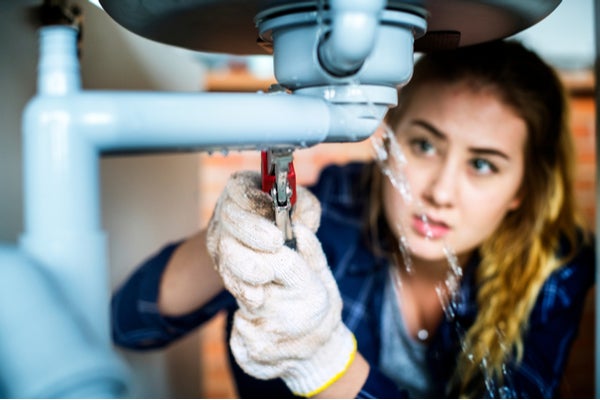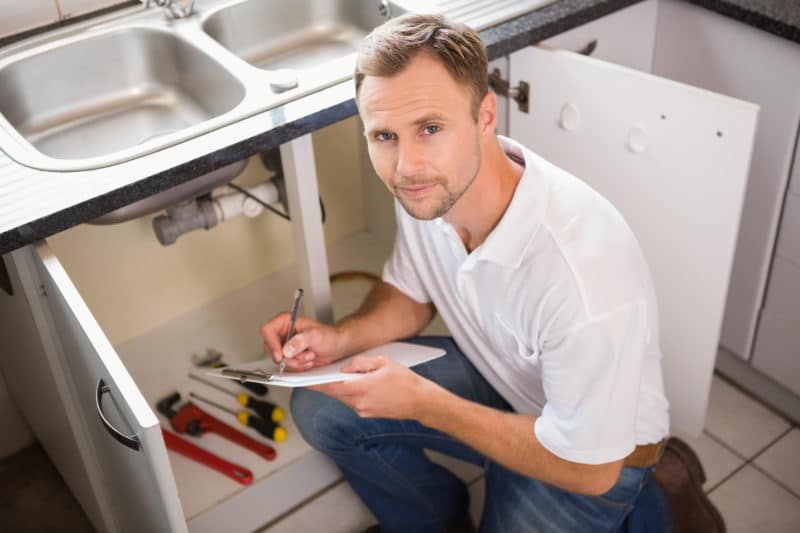Schedule
This great article listed below relating to Don’t Let an Earthquake Damage Your Plumbing is incredibly stimulating. You should check this stuff out.

The secret to durable home appliances, unsurprisingly, is proper upkeep. There's no set regulation that can ensure your plumbing devices a lengthy wear, however you can protect against unnecessary damage and repairs by preventing poor plumbing behaviors.
You need to stop doing these 6 points else you'll maintain calling your plumber over for minor faults.
Purging everything
Yes, your toilet drain leads to the sewers, but that doesn't mean you need to dump just anything down the drain. Numerous 'flushable' materials are really great blockage starters, as an example floss. Asides keeping apparent non-flushable products like cables and also plastics out of your toilet, you must also stay clear of flushing cotton swab, menstrual products, wipes, daipers and also prophylactics down the bathroom drain.
Putting grease in the sink
We know properly throwing away oil after a hearty meal is a discomfort. However merely pouring it down the drain can do lasting damage to your pipelines. "The fat and also oil can obstruct your drainpipe severely enough to require you to call a plumber," describes Dawson. "Plumbing functions best when it's well looked after-- not abused with oil."
Using way too much drainpipe cleaner
Using a drain cleaner greater than one or two times a month is an indication that something significant is taking place within your pipes. Now, rather than encountering the main problem, you go for a quick fix; a carbonated drainpipe cleaner. Rightfully, a drain cleaner will care for the blockage, however at what expense?
The chemicals in a drain cleanser can accelerate the rust of your pipelines. Include that to whatever underlying issue is creating the obstruction and you may have to a severe issue on your hands.
If you experience too many clogs, call your emergency plumber rather than making use of a drain cleaner.
Not washing dishes prior to loading them right into the dishwashing machine
it's called a dishwashing machine, however throwing in recipes, pots, as well as frying pans covered in big food bits can in fact trigger some major damage to the appliance, resulting in long-lasting issues down the line. "Home owners may have to get their dishwasher repaired regularly if they do not wash their dishes prior to packing, or at least get rid of larger food pieces," explains Audrey Monell, owner of Forrest Anderson Plumbing as well as A/c in Glendale, Arizona. "Food that obtains stuck on dishes causes the dishwashing machine to function harder, which can wear down parts faster, causing troubles."
DIYing every little thing
With plumbing, a stitch in time actually does conserve nine. You can stop a fullblown plumbing emergency by calling your plumber at the right time.
You might have learnt a couple of plumbing hacks from your daddy, yet you should know where to draw a line as well as call a professional. As an example, you may have the ability to fix a blockage yourself, however you should not attempt to change a pipeline. You could inequality pipes or overtighten a bolt, causing more injury and also damage than you thought. Calling a plumber is a risk-free and also cost effective choice.
Not changing your dishwasher hose pipes
One easy means to make certain that you utilize your dishwasher for many years is to change the hose pipe at the very least as soon as in 5 years. This likewise requests cleaning device tubes.
In time, food particles, soap and also oil can form blockages within your pipelines. Changing them on time will prevent any presure build up that can damage the interior operations of your dish washer or cleaning machine.
A strengthened steel entwined pipe does an excellent job of prolonging your equipment's usage time.
No winter months preventative measures
Extreme weather conditions are bad for your pipelines, specifically if they're made of steel. You should shield your revealed pipes, and your water tank, even if you have a water heater. You must additionally turn off your yard hose pipe shutoff and any other outside water channels. These networks are electrical outlets for cold; you pipelines can begin to ice up from outside if you do not.
Ways That Hard Water Affects Your Plumbing And Appliances
CLOGGED DRAINS
Calcium and magnesium from hard water go beyond the drain screen that you clean. Each time water passes through the drain screen, the minerals attach to the sides of the pipes and other hard water deposits. As you continue to use the drain, more of the minerals attach to these deposits, eventually clogging the drain. Most drain cleaners remove only a small amount of the minerals, so the drain continues to run slow and back up water in your sinks, tubs, and showers.
DECREASED WATER FLOW
Do you have a faucet that runs slow even when you increase the water flow at the valve? Hard water deposits not only affect how water runs out of your home but also how water is delivered to your faucets. When calcium, magnesium, and minerals build up in pipes, it slows the flow of water and also builds up pressure inside the pipes that causes a backflow of water.
CORROSION
Calcium and magnesium have properties that are destructive to certain types of metal, many of which are used for plumbing in older homes. The minerals slowly break down the metal in your pipes. This can cause leaks, breaks, and even discolored water. If the corrosive section of the pipe is not repaired and the hard water deposits removed, entire sections of your plumbing may disintegrate. You may end up replacing a large portion of your plumbing system. Corrosion can happen on any metal surface, not just your pipes. Calcium and magnesium can also cause corrosion on your faucets, drains, valves, appliances, and fixtures.
REDUCED WATER QUALITY
You rely on your plumbing system to deliver clean water for cooking, washing your clothes, bathing, and many other daily tasks. Hard water has small particles of minerals in it. The water is safe to drink, but it is not ideal for your appliances. The minerals interfere with how soaps and detergents work to remove dirt, food, oils, and other substances. As a result, you must use more cleaning products, and your appliances have to work harder to clean dishes and clothes.
BROKEN PIPES AND LEAKS
Broken pipes and leaks from hard water happen in two ways. First, hard water is corrosive to the materials that are used in older homes. Eventually, minerals eat through the pipe and create a small opening in the side of the pipe. The opening grows larger and larger until you have a major leak on your hands. Second, the mineral deposits inside the pipes prevent water from flowing through efficiently. If the water is pushed through the plumbing at the same volume, pressure builds up, and eventually, the pipes and connections fail.
ENERGY EFFICIENCY
Hard water and mineral deposits in your plumbing affect the energy efficiency of your appliances, even the older models that do not meet modern standards. When you find a white residue on your dishes or your clothes don’t feel clean, you may find yourself running the wash cycle a second time. This requires more energy use and raises your utility bills. Some newer high-efficiency models of dishwashers and washing machines have sensors that detect when items are clean. Hard water deposits on the dishes or clothes will trigger the sensors and cause the appliance to run longer.
Another way that hard water affects your budget is the investment you make in products for hard water deposits. Rather than spending your money on higher utility costs and household products, invest in a water softening system from Beyer Plumbing Co. to prevent the problems of hard water.
WEAR AND TEAR
Hard water deposits build up on the connections, drains, and jets in your washer or dishwasher that circulate the water and clean your clothes and dishes. As a result, water may collect inside your appliances, creating the ideal environment for corrosion, mold, and other damaging substances. The components break down sooner, and your appliances may not last as long as expected. In some cases, the lifetime of an appliance may be reduced by three or four years simply due to hard water deposits. Using soft water in your appliances ensures that you get the maximum return on your investment.
https://beyerplumbing.com/9-ways-that-hard-water-affects-your-plumbing-and-appliances/

I was brought to that write-up about Don’t Let an Earthquake Damage Your Plumbing through someone on a different web blog. Sharing is nice. Helping others is fun. I take joy in reading our article about Ways to Make Your Pipes Last Longer.
Quote